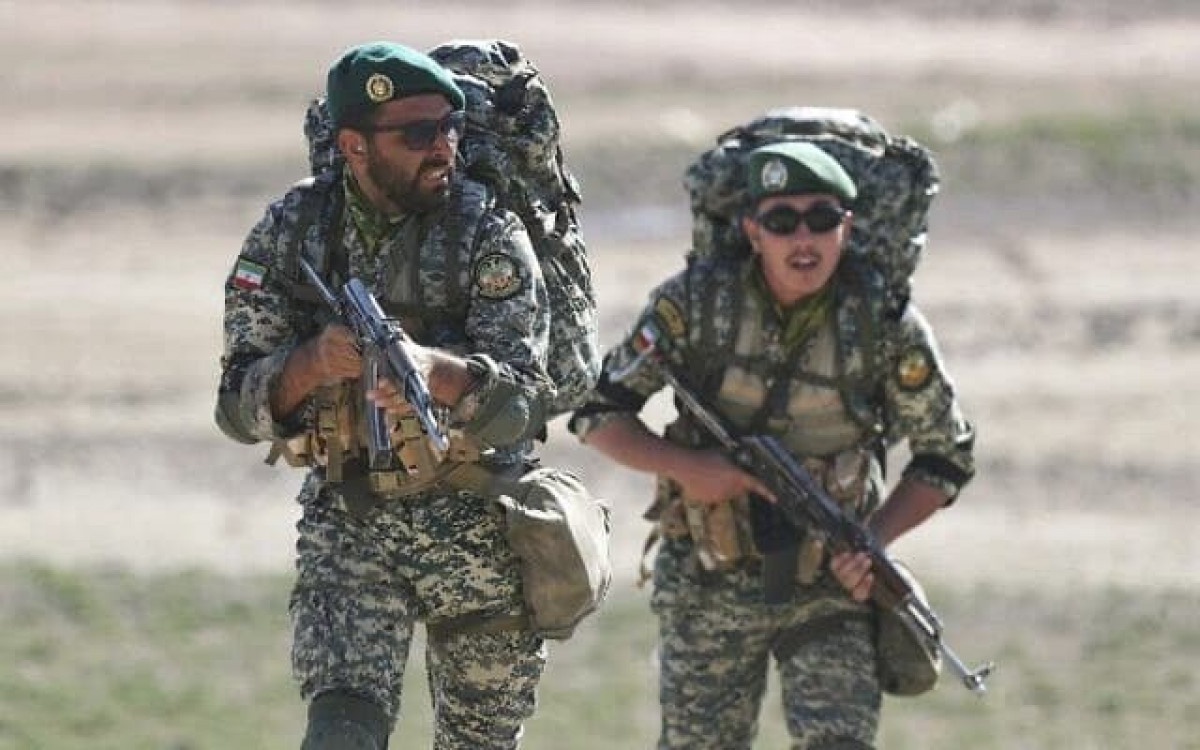 78
78
You do not have to be an expert in geopolitics to understand that Iran is actually surrounded by sworn enemies waiting for an opportunity to strike. Numerous governments seek to destabilise Iran due to the country’s vast natural resources and the unique geopolitical situation. A day does not pass unless Zionist politicians threaten to attack Iran militarily, as they have done for the last two decades. So it is rational to assume that the Iranians will almost certainly face an all-out assault if their defence capabilities do not improve concomitant with Iran’s dangers. Today, Iran faces reactionary Arab regimes whose leaders openly advocate war against the country and Turkey, which covets to annex the Iranian province of Azerbaijan, not to mention the US, which intervenes 15,000 kilometers beyond its borders to station military bases around Iran. Is there any provision of international law that permits the US to pursue its interests 15.000 kilometres away from its borders? Certainly not. Several optimistic observers believe that disagreements between Iran and the West can be resolved easily and broadly through diplomatic channels. Although the Iranians negotiated with the Americans and Europeans in good faith for years and finally reached a nuclear deal in 2015, they failed to live up to their obligations after confirmation that Iran had completely complied with all of its commitments. Few naïve Iranians still see the US and Europe as good and bad policemen, but the majority of the Iranian nation knows that their ultimate goal remains the same: to weaken Iran to the brink of invasion and then attack Iran like wolves, with each side taking a piece of the pie, exactly as NATO did in Libya. So, Iran has no other option than to strengthen its military deterrence. Many Iranian citizens now believe that, given the current situation, why should Iran’s peaceful nuclear programme be restricted when Israel possesses hundreds of nuclear weapons and missiles and routinely threatens Iran with a military attack? Furthermore, numerous US politicians, including former US Ambassador to the United Nations John Bolton, have openly threatened Iran with a nuclear attack to coerce it into abandoning peaceful nuclear technology Iran desperately needs to generate electricity and manufacture medicine for cancer patients. However, Iran’s approach has changed significantly since the newly-elected President Ebrahim Raisi assumed office. Today, there are strong voices in Tehran urging the international community to dismantle Israel’s nuclear arsenal if it is serious about preventing a Middle East weapons race. What justifies prohibiting Iranians from building defensive weapons when Iran’s adversaries, such as Israel, spend tens of billions of dollars each year on weaponry and publicly proclaim their desire to attack Iran? Recently, Iran’s military manœuvres in the country’s northwestern regions, near its shared border with the Republic of Baku, were staged on accomplishing highly important objectives. The goals of these military drills, which were staged by the Islamic Revolutionary Guard Corps (IRGC) and the Islamic Republic of Iran Army, are connected to recent events on the country’s northern frontiers and in the aftermath of the 2020 Nagorno-Karabakh conflict, which saw the egregious intervention of the Zionist regime, providing military hardware to the regime in Baku. After the war between Azerbaijan and Armenia, the border changes have bolstered Turkey’s military and political presence in the southern Caucus, restricting Iran’s commercial mobility and intended primarily to isolate Iran. Iran used the recent military exercise to warn Baku and Turkey that decision-making in this volatile region of the world would be extremely precarious, if not impossible, without Iran. The regime in Baku decided to illegitimately alter the boundary between Azerbaijan and Armenia by establishing the alleged ‘Zangezur corridor’, connecting the Nakhchivan Autonomous Republic to mainland Azerbaijan without adequately assessing the sensitivities of Iran. Nevertheless, Iran would not accept any modifications to its northern borders. International law regulates boundary changes to ensure they do not have unfavourable political, economic, or other consequences for neighbouring countries. The corridor’s future is highly critical for the Islamic Republic of Iran as Tehran opposes any dramatic changes in geopolitics in the southern Caucasus, which blocks Iran from accessing the European Union (EU) markets and will jeopardise Iran’s north-south corridor with Russia and Georgia. According to Iranian military sources, a sizable number of Israeli Mossad agents are stationed near the Azerbaijan- Iran border. These circumstances may result in the establishment of many challenges for the Islamic Republic. Hence Iran sees it imperative to deny with all necessary measures the Zionists access to the region. Iran waits to see how Baku and Tel Aviv react to the military exercises, codenamed ‘Conquerors of Kheibar,’ and if they get Iran’s warnings and cautionary message; otherwise, Iran must resort to its other military and political alternatives. Meanwhile, the Zionist (like Brenda Shaffer and her ilk) and Turkish lobbying groups in Washington seek to convince the American administration that Turkish expansion in the Caucasus and Central Asia will effectively mitigate Russian and the Chinese threat against the United States. Turkey, a member of NATO, should consider Iran’s perspective, and that Ankara and Baku should recognise that the problems that arise in this region will not be limited to Iran.
Comment
Post a comment for this article